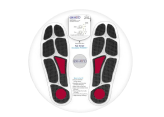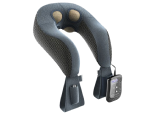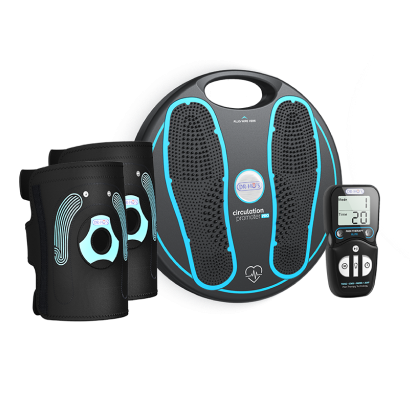What is Tai Chi?
Tai chi is an ancient Chinese tradition that has evolved over centuries to become a means of alleviating stress and anxiety. In fact, advocates claim that it promotes serenity and inner peace and it has also been referred to as “meditation in motion.”
Physically, tai chi has been shown to improve balance control, fitness, and flexibility, and also helps reduce the risk of falls in older people. It also appears to reduce pain and symptoms of depression.
Discover why tai chi is so beneficial and how you can get started!

Health Benefits of Tai Chi
Tai chi can provide a number of physical and mental health benefits. A few of these include:
- Improved mood and lower depression, stress, and anxiety
- Muscle Strength
- Increase in energy
- Enhanced flexibility, balance, and agility
- Lower blood pressure
- Reduced inflammation
- Stronger immune system
Who Can Benefit from Tai Chi?
The benefits of tai chi can help a number of different people who suffer from either acute or chronic pain, but also, specific conditions.
People of all ages can benefit from tai chi. Tai chi requires no equipment, weights, or excessive physical ability and can be done right at home. There are several conditions that have been proven to be significantly improved by practicing tai chi. A few of these include:
Fibromyalgia
Fibromyalgia is a musculoskeletal condition that is often described as “pain all over.” For those who suffer from fibromyalgia, it’s important to find treatments to help manage your pain. Oftentimes, it’s recommended to find ways to reduce stress, get sufficient sleep, exercise and eat a well-balanced diet.
A study conducted by The New England Journal of Medicine found that tai chi has a therapeutic effect on patients with fibromyalgia. The patients assigned to the tai chi group experienced clinically important improvements in their “fibromyalgia impact questionnaire” and reported a higher quality of life.

Diabetes
Those who suffer from diabetes experience very high levels of blood sugar, which can result in poor blood flow and high levels of fatigue. The British Journal of Sports Medicine conducted a study that indicated tai chi is capable of improving blood glucose levels in patients with type 2 diabetes. More importantly, tai chi was also shown to help improve a patient’s immune system response.
Parkinson’s Disease
Patients with Parkinson’s disease have substantially impaired balance and have an increased risk for falling. A study found that after participating in a tailored tai chi program, patients with Parkinson’s had reduced falls and greater balance. The tai chi group performed consistently better than the resistance-training or stretching groups.
Depression and Mood Disorders
According to recent studies, tai chi is able to reduce symptoms of depression in the elderly, while reducing a need for medication. This study shows that adding a mind-body exercise like tai chi that is widely available in the community can improve the outcomes of treating depression in older adults, who may also have other, co-existing medical conditions, or cognitive impairment.
10 Tai Chi Moves for Beginners
Try Tai Chi!
If you have been experiencing physical pain, mental health issues, or are simply looking for a new exercise to participate in, try tai chi. Tai chi offers benefits for the health and well-being of people of all ages and athletic abilities. Watch the beginners video or sign up for a class in your local community if you are interested in experiencing the many healing benefits of tai chi.
References:
- Chuanshan Xu, Hong Wei Zhang, Albert WN Leung, Zhi Xiu Lin, Ying Qin, Albert WN Leung.( 2017). “Tai Chi for improving recovery after stroke.” Cochrane Database of Systematic Reviews. http://www.nejm.org/doi/full/10.1056/NEJMoa1107911#t=abstract
- Nordqvist, J. (2016). “What are the health benefits of tai chi?” MNT. http://www.medicalnewstoday.com/articles/265507.php#health_benefits_of_tai_chi
- Wang, C, M.D. (2010). “A Randomized Trial of Tai Chi for Fibromyalgia.” The New England Journal of Medicine. http://www.nejm.org/doi/full/10.1056/NEJMoa0912611
- Wheeler, M. (2011). “Tai chi beats back depression in the elderly, study shows.” UCLA. http://newsroom.ucla.edu/releases/tai-chi-beats-back-depression-199019
- Yeh S, Chuang H, Lin L, et al. (2009). “Regular Tai Chi Chuan exercise improves T cell helper function of patients with type 2 diabetes mellitus with an increase in T-bet transcription factor and IL-12 production.” British Journal of Sports Medicine. http://bjsm.bmj.com/content/43/11/845
Learn more about Diet, Exercise & Sleep on the DR-HO'S Blog!
A Guide to Relieving & Managing Chronic Pain at Home
Eating for Energy: How a Balanced Diet Helps Keep You Moving
6 Foods That Target Inflammation
Can Yoga Help With Lower Back Pain?
Can Chronic Pain Lead to Depression and Anxiety?
7 Ways to Stay Active and Healthy in Cold Weather
How to Work Out With Chronic Pain and Prevent Injury
Foods to Eat and Foods to Avoid to Sleep Better All Night
5 Lower Back Pain Relief Stretches & Simple Yoga Moves







